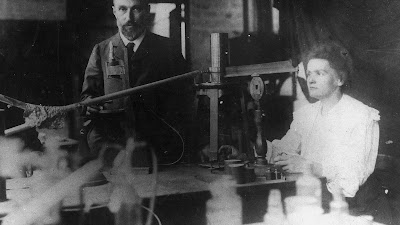The Royal Swedish Academy of Sciences has decided to award the Nobel Prize in Physics 2020 with one half to Roger Penrose, University of Oxford, UK “for the discovery that black hole formation is a robust prediction of the general theory of relativity” and the other half jointly to Reinhard Genzel, Max Planck Institute for Extraterrestrial Physics, Garching, Germany and University of California, Berkeley, USA and Andrea Ghez, University of California, Los Angeles, USA “for the discovery of a supermassive compact object at the centre of our galaxy”.
Three Laureates share this year’s Nobel Prize in Physics for their discoveries about one of the most exotic phenomena in the universe, the black hole. Roger Penrose showed that the general theory of relativity leads to the formation of black holes. Reinhard Genzel and Andrea Ghez discovered that an invisible and extremely heavy object governs the orbits of stars at the centre of our galaxy. A supermassive black hole is the only currently known explanation.
Roger Penrose, born 1931 in Colchester, UK. Ph.D. 1957 from University of Cambridge, UK. Professor at University of Oxford, UK.
Reinhard Genzel, born 1952 in Bad Homburg vor der Höhe, Germany. Ph.D. 1978 from University of Bonn, Germany. Director at Max Planck Institute for Extraterrestrial Physics, Garching, Germany and Professor at University of California, Berkeley, USA.
Andrea Ghez, born 1965 in City of New York, USA. Ph.D. 1992 from California Institute of Technology, Pasadena, USA. Professor at University of California, Los Angeles, USA.
Prize amount: 10 million Swedish kronor, with one half to Roger Penrose and the other half jointly to Reinhard Genzel and Andrea Ghez
On 27 November 1895, Alfred Nobel signed his last will and testament, giving the largest share of his fortune to a series of prizes, the Nobel Prizes. As described in Nobel’s will one part was dedicated to “the person who shall have made the most important chemical discovery or improvement”. Learn more about the Nobel Prize in Physics from 1901 to 2020.
114 Nobel Prizes in Physics have been awarded since 1901. It was not awarded on six occasions: in 1916, 1931, 1934, 1940, 1941, and 1942.
47 Physics Prizes have been given to one Laureate only.
32 Physics Prizes have been shared by two Laureates.
35 Physics Prizes have been shared between three Laureates.
The Nobel Prize in Physics has been awarded to 216 Laureates* 1901-2020. As John Bardeen has been awarded twice there are 215 individuals who have been awarded the Nobel Prize in Physics since 1901.
The youngest Nobel Laureate in Physics is Lawrence Bragg, who was 25 years old when he was awarded the Nobel Prize together with his father in 1915.
The oldest Nobel Laureate in Physics to date is Arthur Ashkin who was 96 years old when he was awarded the Nobel Prize in 2018.
Female Nobel Laureates in Physics
Of the 215 individuals awarded the Nobel Prize in Physics, four are women.
1903 – Marie Curie (also awarded the 1911 Nobel Prize in Chemistry.)
1963 – Maria Goeppert-Mayer
2018 – Donna Strickland
2020 – Andrea Ghez
Multiple Nobel Laureates in Physics
John Bardeen is the only person who has received the Nobel Prize in Physics twice, year 1956 and 1972 . Marie Curie was awarded the Nobel Prize twice, once in Physics 1903 and once in Chemistry 1911.
Family Nobel Laureates in Physics
Married couples:
Marie Curie and Pierre Curie were awarded the Nobel Prize in Physics in 1903. Marie Curie was awarded the Nobel Prize a second time in 1911, this time receiving the Nobel Prize in Chemistry. (One of Marie and Pierre Curie’s daughters, Irène Joliot-Curie , was awarded the Nobel Prize in Chemistry in 1935 together with her husband Frédéric Joliot.)
Father & son: (All awarded the Nobel Prize in Physics)
William Bragg and Lawrence Bragg, 1915
Niels Bohr, 1922 and Aage N. Bohr, 1975
Manne Siegbahn, 1924 and Kai M. Siegbahn, 1981
J. J. Thomson, 1906 and George Paget Thomson, 1937
visit:- reviewguys.in









0 Comments